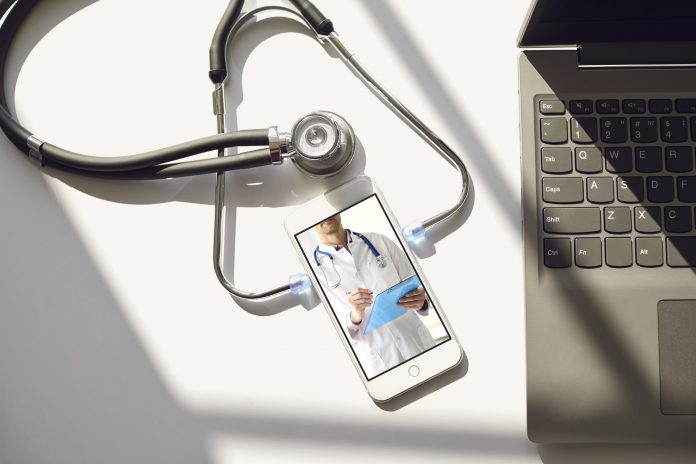Fintan Grant, NHS Digital’s Programme Head for Medicines and Pharmacy charts the recent change in the speed of healthcare delivery in light of COVID-19 including the importance of digital solutions
Never in the history of modern medicine has the way we deliver healthcare had to change so dramatically in such a short space of time.
At the start of the Coronavirus (COVID-19) pandemic, GP practices faced the challenge of replacing most face-to-face appointments with remote consultations – to prevent further spread of the virus.
The percentage of telephone and online consultations increased at a faster rate than ever before and the number of patients using NHS 111 and NHS 111 Online went through the roof.
Both 111 services proved invaluable for a whole host of reasons – one of which was their ability to refer patients to community pharmacies for urgent medication – without the need to see their GP.
But with greater flexibility in how we access medication came a more pressing requirement to ensure we join the dots between pharmacies and GP practices.
Improving the flow of information between pharmacies and GPs
It’s more important than ever for GPs to be kept up-to-date on the medication their patients are receiving, so that practices don’t re-supply these drugs unnecessarily.
In the past, pharmacies would have notified GPs via NHSmail, fax or letter, but in today’s digital age, this was far from efficient.
Practice staff were relied upon to sort through the various notifications and then update the patient’s record; a process that was not only time-consuming for practice staff, but also dependent on their workload and occasionally prone to human error.
With or without COVID-19, the creation of a consistent, digital solution was absolutely necessary.
Winter 2019: Electronic notifications go live
Fortunately, an electronic notification solution already existed and had been rolled out in the winter of 2019 for flu vaccinations – initially to one pharmacy system and one GP system.
News of the first UK COVID-19 case was still a couple of months away, so the focus was on delivering a solution that ensures GPs had an up-to-date record of vaccinated patients.
Not only did this improve data quality and timeliness. It also meant practice teams were no longer contacting patients unnecessarily, saving valuable time.
Digital referrals to a local pharmacy
In spring 2020, COVID-19 hit the UK and work began to accelerate expanding this existing technology to include urgent supplies of medicines following an NHS 111 referral to pharmacy.
These referrals are part of the Community Pharmacist Consultation Service (CPCS) which offers patients same-day consultations with pharmacists, who are experts in medicines and trained in managing minor illnesses.
Following an initial assessment, an NHS 111 call handler can make a digital referral to a convenient pharmacy for advice and treatment for a range of minor illnesses or for an urgent supply of a previously prescribed medicine.
Electronic notifications were essential in joining the dots here – ensuring GP practices were updated on medications supplied to their patients by pharmacists.
How it works
When a community pharmacist records a flu vaccination or an urgent supply of medicine on their system, it automatically generates an electronic message made up of structured information, which is in a standardised format and computer-readable.
This is the key to interoperability, as it allows clinical information to flow seamlessly across care settings, from one system to another.
The messages are then sent securely to the GP practice where they are received as workflow tasks which prompt practice teams to update records. This removes the need to scan and manually process paper.
One GP system even adds the details directly to a patient’s record, without practice teams having to transcribe the information manually.
CPCS and COVID-19
When first launched in 2019, nobody had really considered the role that electronic notifications and CPCS might play in a pandemic.
CPCS has, however, proved key in helping patients get the medicines they need quickly, conveniently and with support from a healthcare professional, while electronic notifications have helped to join the dots when timely communication is so important.
Electronic notifications are now being used by the majority of community pharmacies and GP practices, for both flu vaccinations and CPCS urgent supplies of medicines.
On average, 10,500 patients per week are being referred for a consultation with a pharmacist following a call to NHS 111. These are patients who might otherwise have gone to see a GP or visited an emergency department.











